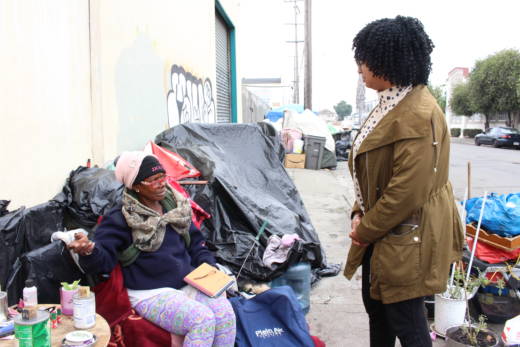About 100 homeless advocates and residents rallied in front of Oakland City Hall Tuesday, imploring the city to improve living conditions in homeless encampments instead of trying to tear them down and evict people living there.
Protestors also sent an open letter to Mayor Libby Schaaf asking her to stop ordering so-called "sidewalk sweeps."
The action was prompted by the recent release of a scathing United Nations report on global homelessness that specifically criticizes Oakland and San Francisco for denying basic services to people living in street encampments. The report is based on a walking tour taken by Leilani Farha, the UN Special Rapporteur on the right to housing.
Describing conditions at the homeless encampments as "cruel and inhuman," and comparing them to slums in the world's poorest nations, the report chastises both cities for denying basic services to people living on the street.
"Attempting to discourage residents from remaining in informal settlements or encampments by denying access to water, sanitation and health services and other basic necessities constitutes cruel and inhuman treatment," the report said, "and is a violation of multiple human rights, including the rights to life, housing, health and water and sanitation."

